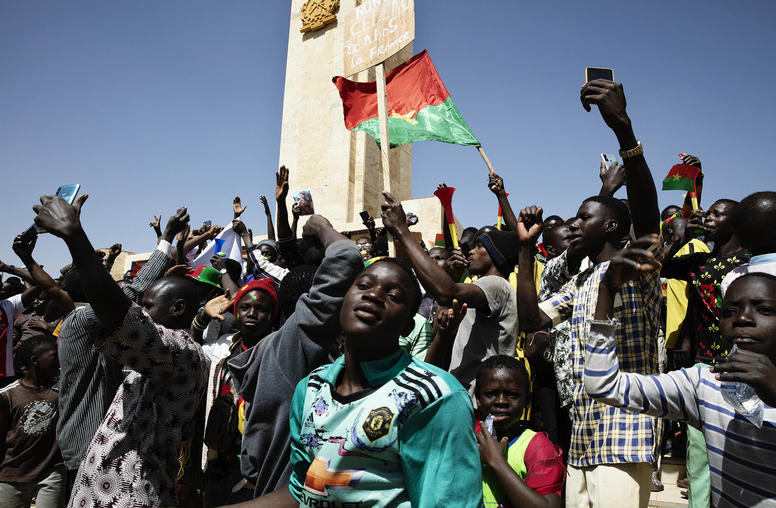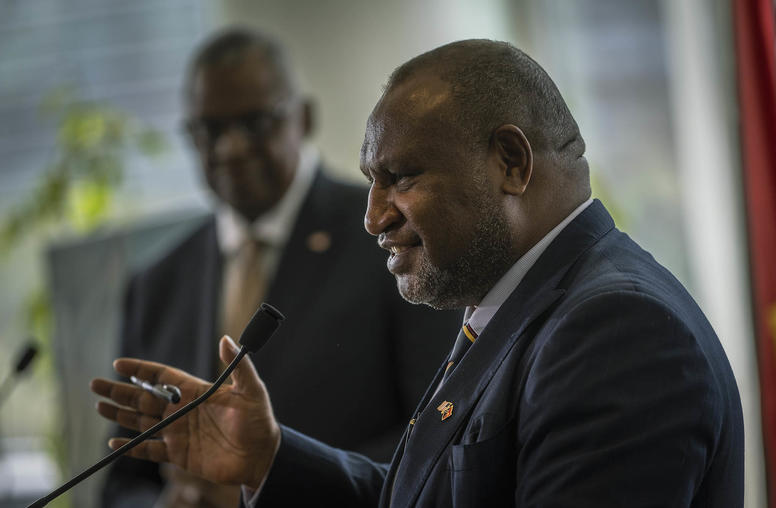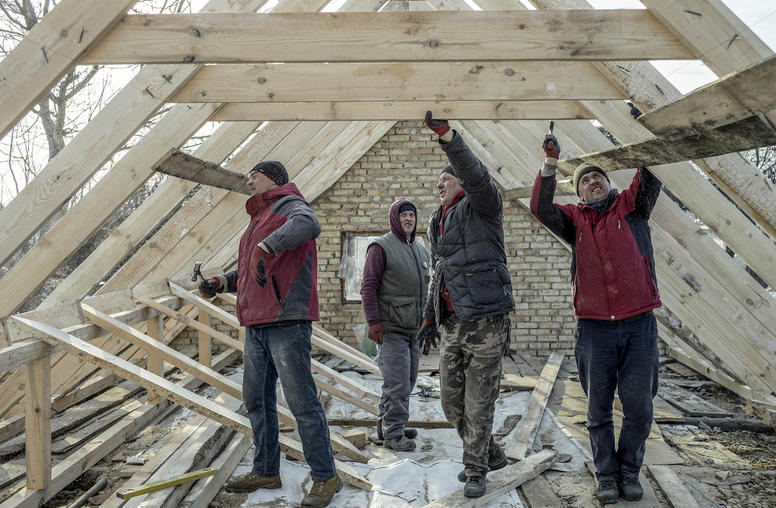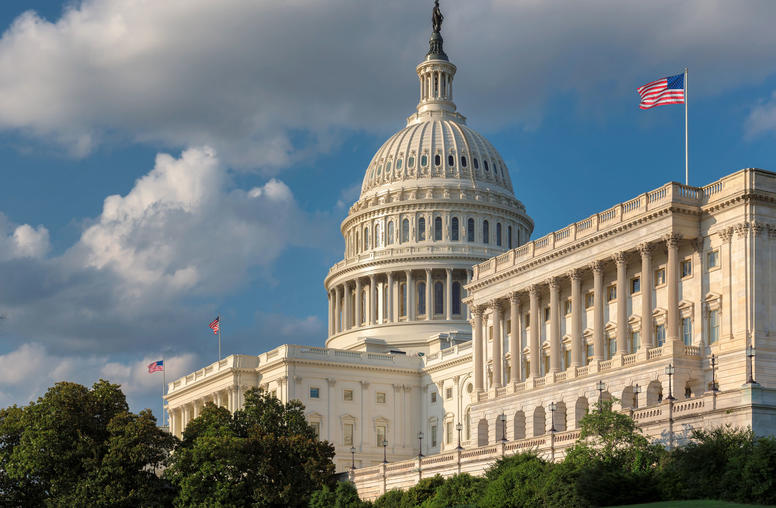Nancy Lindborg on Addressing Extremism in Fragile States
Seventeen years after the 9/11 attacks, Nancy Lindborg details the findings of an interim report from the congressionally mandated Task Force on Extremism in Fragile States. Convened by USIP, the Task Force will devise a comprehensive new strategy for addressing the underlying causes of extremism in fragile states, says Lindborg, a member of the Task Force.
On Peace is a weekly podcast sponsored by USIP and Sirius XM POTUS Ch. 124. Each week, USIP experts tackle the latest foreign policy issues from around the world.
Transcript
Tim Farley (Host): To stop the next September 11th attack, the United States needs new strategy to mitigate the conditions that enable extremist groups to take root, spread, and thrive. That is the opening salvo fired by Thomas Kean and Lee Hamilton, contributing to an op-ed that appeared in a couple different places. They of course are the co-chairs of the 9/11 Commission, which was convened after the attacks of September 11th on 2001. Governor Kean of New Jersey, Congressman Hamilton, different parties, but managed to put together a bipartisan examination of the events and what needed to be done. And now they are doing the same in at least a suggestion of a map forward. Let's talk about it with Nancy Lindborg. Nancy is the president of the United States Institute of Peace and she is Tweeting @nancylindborg. Nancy, welcome.
Nancy Lindborg (NL): Thank you. Good to be here.
TF: So I know last night there was a get together and I had talked yesterday to the folks at the BPC, the Bipartisan Policy Center, there was an awards ceremony. And there was also a dinner I guess last night. And this was not open to the public and I guess you may be able to give us some insight into the kinds of conversations that were taking place last night.
NL: Yes, I'd be happy to. USIP and Bipartisan Policy Center partnered for an event last night that both honored the extraordinary career, which you just outlined, of Congressman Hamilton and Governor Kean, who really exemplify dedicated public servants. They stepped up when they were called to author the 9/11 report, to lead the 9/11 bipartisan commission at a really difficult time for our country. And 17 years later, here we are. The key recommendations of the 9/11 Commission report were taken on board, and that has kept the homeland safe. It has re-formulated our security system, and we had National Intelligence Director Coats last night to talk to us about that.
But one important recommendation from their report was not followed. And it's a recommendation that they believe is critical for preventing attacks in the future. And that's putting together a preventive strategy that gets at the underlying causes of violent extremism around the world. And what we've seen in the past 17 years is that in 2001, there were fewer than 2,000 terrorist attacks worldwide. Now, in 2017, there were more than 10,000. So that part of the challenge has in fact grown worse. That was the genesis of the task force that Congress, led by Senator Lindsey Graham, asked USIP to host and to put together. And once again, Congressman Hamilton and Governor Kean stepped up to the cause, and have agreed to co-chair at what they see as the unfinished business from the 9/11 Commission.
TF: I wanna quote from the op-ed that they wrote, "The 9/11 Commission which we chaired 14 years ago, recommended three core goals for US policy," as you said Nancy Lindborg. "Attack terrorists and their organizations, protect against and prepare for attacks, and prevent the continued growth of Islamist terrorism. The US has effectively carried out the first two elements of this strategy, but made little headway on the third." And I wonder if there was any discussion at this dinner last night about that third, "Prevent the continued growth of Islamist terrorism," in other words, that politically has been a very charged word, "Islamist," and I wonder if there was any kind of conversation about the use of the terminology as well as the methods that need to be put in place to protect the US.
NL: You know, the conversation really focused on what the Task Force on Extremism in Fragile States has been asked to do, which is look at the underlying causes of violent extremism in fragile states, with a focus on the Sahel, on the Horn of Africa, and the Middle East. And when you look at that cluster of countries, what you see are shared characteristics of many, many fragile countries with the presence of violent extremism in 19 of the 45 countries that are in those three regions. Terrorists or violent extremists have held territory in 10 of those countries. They are for the most part Muslim majority countries, and so there is an important effort to understand how is it that extremists who are hooking on to the core tenets of Islam and using that to recruit very disenfranchised, often very illiterate or at least not very aware of core religious tenets populations, especially youth. So it's how all these issues cluster together. The goal of the extremists, the breeding ground that fragile states offer, and the vulnerability of these populations who feel great injustice, they usually are shut out from opportunities by weak or predatory governments. And that's the difficult package that we need to be smarter about understanding and then getting ahead of.
TF: Nancy Lindborg with us, president of the United State Institute of Peace, the interim report on what to do about terror. How much was the domestic mentioned, lone wolfs, etc.? Was that part of the conversation too?
NL: It wasn't because that's not our mandate. And actually, if you look at the op-ed that you just quoted, both Hamilton and Kean think that we've done quite well on protecting the homeland and degrading terrorist networks overseas. But it's this spread in fragile states that has become the most prominent threat. That's the focus that we're looking at. It's the underlying causes in those places. And that does represent a significant threat to the United States security as well as to our allies. We've seen the destabilizing impact of the migration flows that have come out of those countries into our European allies' countries.
TF: Cooperation among the agencies involved is important, and I wonder also about the individuals. And I'm not necessarily asking for an evaluation of the CIA Director Gina Haspell, or Christopher Wray at the FBI, dealing mostly with domestic issues, and Dan Coats, the DNI, Director of National Intelligence. Of course he was there, one of those who was at the dinner last night. But I wonder, is there a sense that the bureaucracy works and that the people who are at the head of all of these responsible organizations are doing their jobs and are able to do so and are able to do so with the support of the administration?
NL: Well, the re-organization of the dozen or so intelligence agencies was probably one of the cornerstones of the 9/11 Commission. And Director Coats talked very powerfully last night about the change that has resulted and the ability of the different agencies to work together, new systems, new ethos. Where what our report is looking at is how we don't have a shared understanding of what those underlying causes in fragile states are, and how that leads to differing activities and different timelines of our security forces, our diplomatic forces, and our development efforts. And we don't maximize the potential of those parts of our government working more effectively together in pursuit of a shared goal to address the underlying causes.
TF: So what happens now? Where do we move from here? What's the next step according to both Governor Kean and Representative Hamilton, Congressman Hamilton? And where do we wind up? What is the next part of this journey I guess?
NL: Yeah, so last night was the release of the interim report that really outlines this interaction between extremism and fragility and puts together the findings and the lessons, drawing on 17 years of hard won learning. That report can be found on the USIP website. Between now and January is the important next step of putting recommendations together on, okay, so what do we do about it? What do we do differently? How do we act in a way that truly puts in place a preventive strategy, the one unfinished piece of business from the 9/11 Commission? And that will be forthcoming in January.
TF: All right, we'll look forward to that. Nancy, thank you so much for joining us on POTUS today.
NL: Always a pleasure, Tim. And would love to come back and talk to you in January about the final recommendations.
TF: We'll put it on the calendar for sure. Nancy Lindborg, thanks for being here.
NL: Take care. Bye-bye.
TF: All right, Nancy Lindborg, the president of the United States Institute of Peace, and important piece of this whole puzzle by the way, obviously. It's sort of like the stock market, when advisors tell you, "Past performance is no guarantee of future success." Despite the fact that we have not suffered another major international terrorist incident in this country since 9/11, there have been other attempts and some instances, but nothing to that scale. That is a tribute to what has been done. But that doesn't mean it's enough for the future. By the way, Nancy is Tweeting @nancylindborg, @nancy L I N D B O R G.




